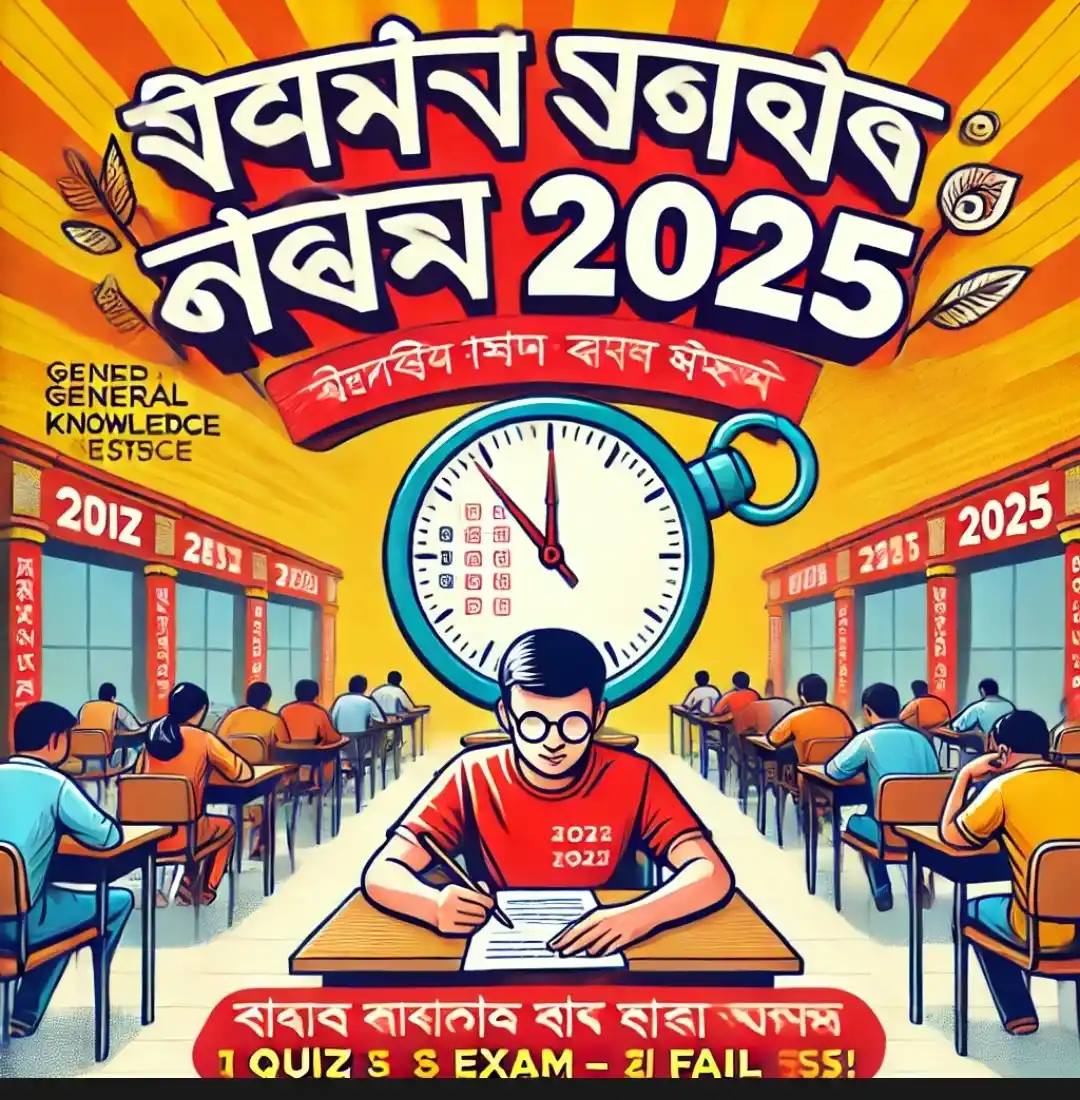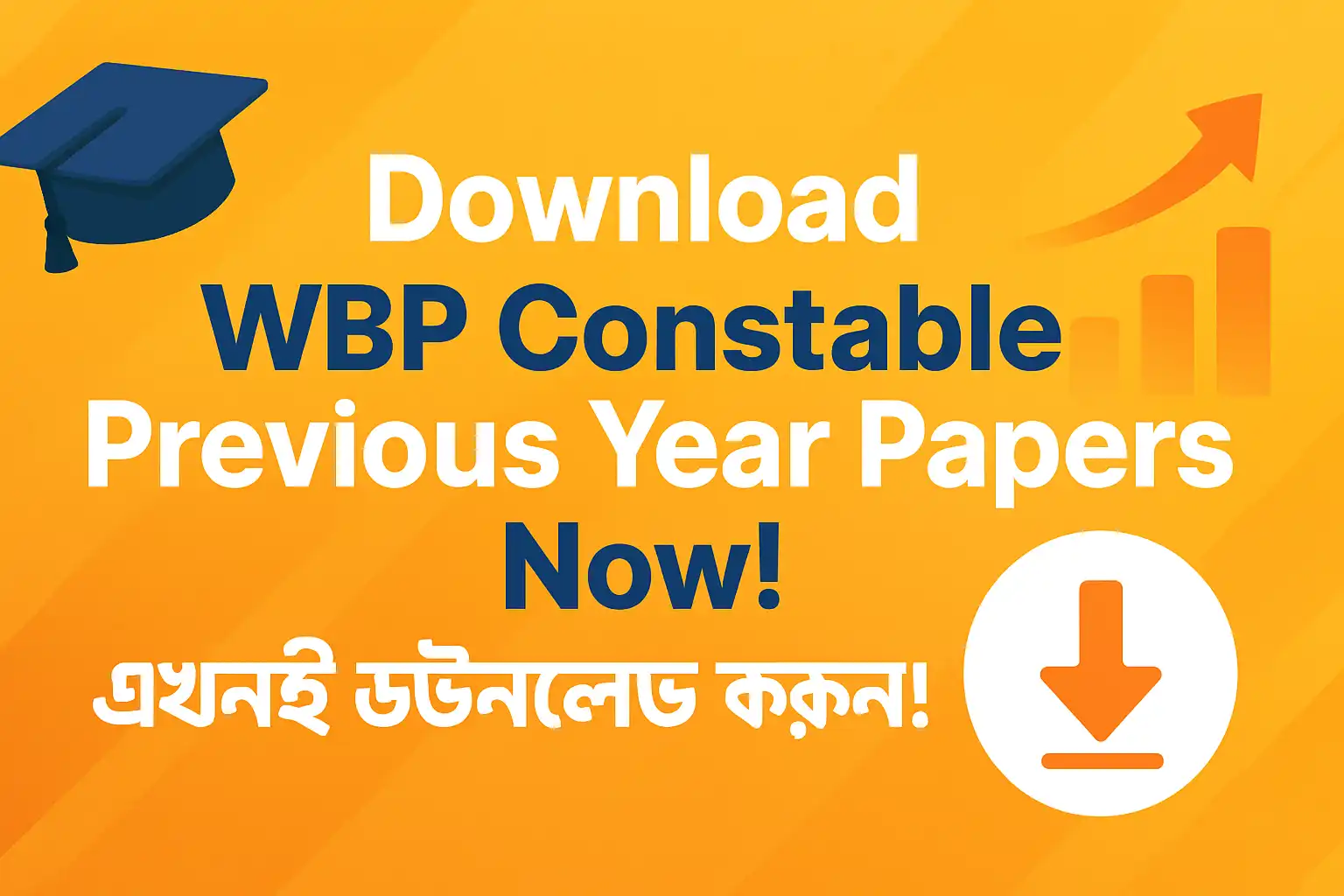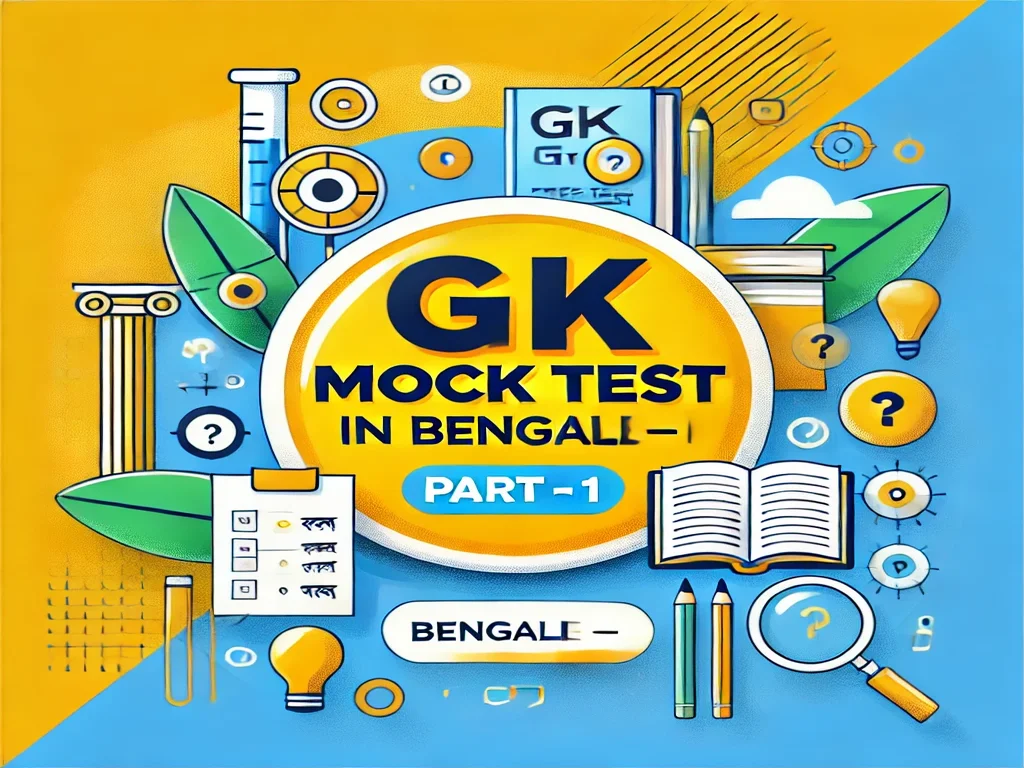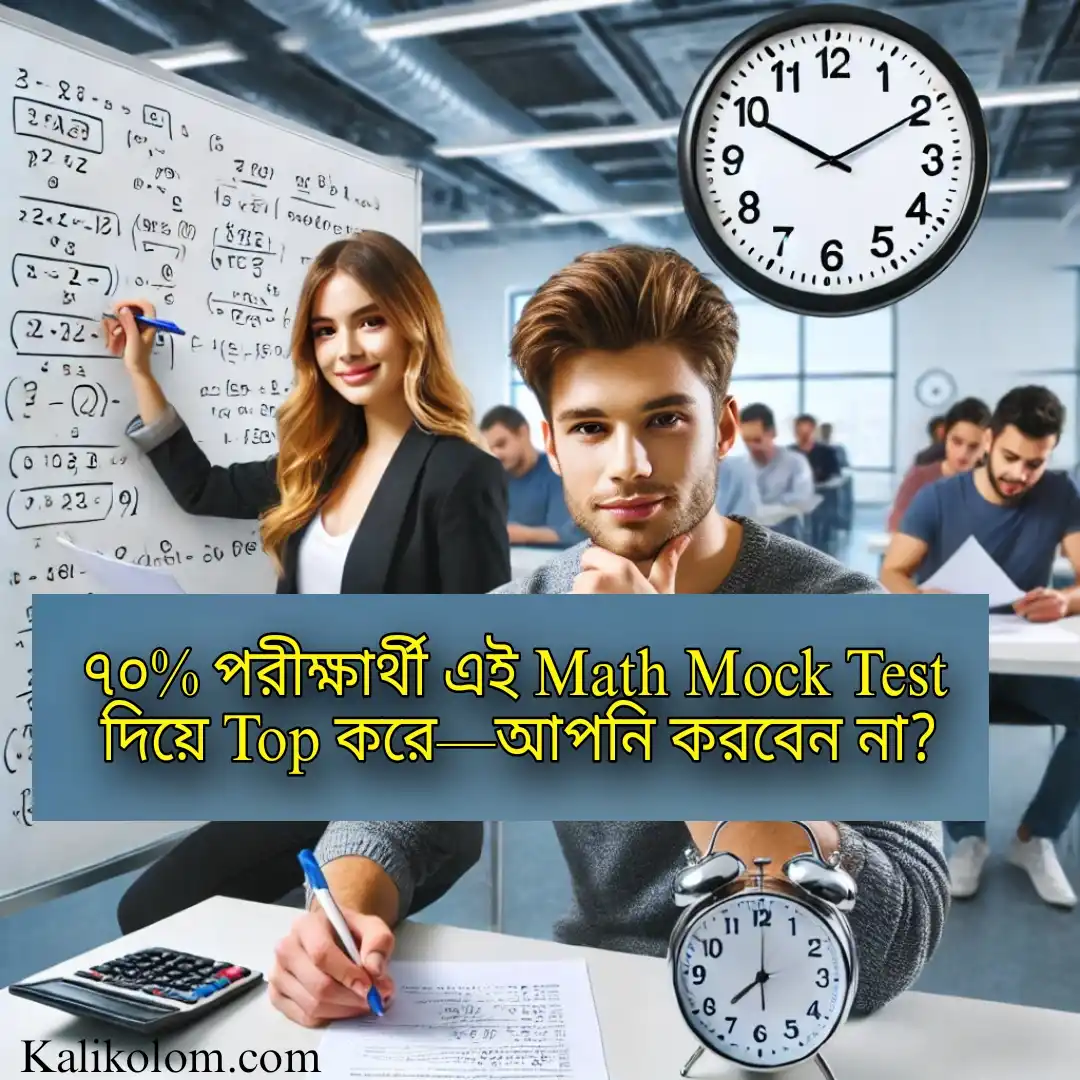Are you an aspiring teacher in West Bengal aiming to crack the State Level Selection Test (SLST) in 2025? Securing a position as an Assistant Teacher in government or government-aided schools through the West Bengal School Service Commission (WBSSC) requires diligent preparation, and the cornerstone of that preparation is a thorough understanding of the WBSSC SLST Syllabus 2025 PDF | All Subject. With a significant number of vacancies announced (reportedly 35,726), the competition is expected to be high, making access to the correct syllabus and exam pattern absolutely crucial.
Many candidates search extensively for the “WBSSC SLST Syllabus 2025 PDF” for all subjects, covering both Class IX-X and Class XI-XII levels. Understanding the precise topics, the structure of the examination, the marking scheme, and the weightage given to different sections (including written tests, academic qualifications, experience, and interviews) is the first step towards formulating an effective study plan. This article serves as your comprehensive resource, consolidating available information to give you a clear roadmap for your WBSSC SLST 2025 preparation journey. We delve into the expected exam pattern, marking distribution, and subject-wise syllabus details based on the latest available data, helping you focus your efforts efficiently.
WBSSC SLST 2025: Exam Overview
The West Bengal School Service Commission (WBSSC) conducts the State Level Selection Test (SLST) to recruit qualified individuals for Assistant Teacher positions in government and government-aided Secondary (Classes IX-X) and Higher Secondary (Classes XI-XII) schools across West Bengal. The upcoming WBSSC SLST 2025 examination represents a significant opportunity for teaching aspirants, with a substantial number of vacancies (reportedly 35,726, although official confirmation is awaited) anticipated.
Understanding the fundamental aspects of the exam is crucial before diving into the syllabus specifics. Here’s a summary of the key details gathered from recent reports:
- Exam Conducting Authority: West Bengal Central School Service Commission (WBSSC)
- Examination Name: State Level Selection Test (SLST) 2025
- Post: Assistant Teacher
- School Levels: Secondary (Classes IX-X) and Higher Secondary (Classes XI-XII)
- Reported Vacancies: 35,726 (Subject to official confirmation)
- Selection Process: The selection is expected to be multi-staged, involving a Written Examination (likely OMR-based), evaluation of Academic Qualifications, assessment of Prior Teaching Experience, an Oral Interview, and a Lecture Demonstration.
- Preliminary Test (PT) Status: Some sources indicate that the Preliminary Test (PT), which was part of earlier selection processes, might be removed for the 2025 Assistant Teacher recruitment. However, this requires definitive confirmation from an official WBSSC notification.
- Official Website: www.wbssc.gov.in (Note: This website was inaccessible during our research phase. Candidates should monitor it regularly for official updates.)
This overview sets the stage for a deeper understanding of how candidates are evaluated. The multi-faceted selection process emphasizes not just subject knowledge tested in the written exam but also academic background, practical teaching experience, and communication skills.
WBSSC SLST Exam Pattern 2025 (Expected)
Based on the information available from educational portals and the structure of the previous SLST (primarily 2016), the WBSSC SLST 2025 exam pattern for Assistant Teachers (Classes IX-X and XI-XII) is expected to follow a multi-stage evaluation. Here’s a breakdown of the anticipated pattern:
Key Components of the Selection Process:
- Written Examination (OMR-Based): This is the primary screening stage.
- Total Marks: 60
- Number of Questions: 60 Multiple Choice Questions (MCQs)
- Marking: 1 mark per correct answer.
- Negative Marking: Sources indicate no negative marking, which is a significant point for candidates.
- Duration: 1 Hour (60 minutes).
- Language: Question papers are typically in English and Bengali, except for specific language subject papers (which are in that language) and Sanskrit (which may be in Bengali).
- Academic Qualification Assessment: Your past academic performance contributes to the score.
- Total Marks: 10
- Evaluation: Based on marks obtained in Graduation/Post Graduation (details below in Marking Scheme).
- Prior Teaching Experience: Relevant experience is valued.
- Total Marks: 10
- Evaluation: Calculated based on years of service in a substantive post (details below).
- Oral Interview: Assesses communication skills and subject depth.
- Total Marks: 10
- Lecture Demonstration: Evaluates practical teaching ability.
- Total Marks: 10
Total Score Calculation: The final merit list is prepared based on the cumulative score out of 100 marks (60 from Written Exam + 10 from Academics + 10 from Experience + 10 from Interview + 10 from Lecture Demo).
Important Note on Preliminary Test (PT): While previous SLSTs included a Preliminary Test (PT), some sources suggest it might be omitted for the 2025 recruitment cycle for Assistant Teachers. Candidates must await the official WBSSC notification for confirmation on this aspect.
WBSSC SLST Marking Scheme 2025 (Detailed Breakdown)
Understanding the marking scheme is vital for strategizing preparation and knowing where to focus efforts. Here’s how the total 100 marks are likely distributed based on available information:
- Written Examination (OMR): 60 Marks (as detailed above)
- Academic Qualification: 10 Marks
- For Class IX-X Assistant Teacher: Based on the higher percentage between Graduation and Post Graduation in the relevant subject.
- 60% and above: 10 Marks
- Below 60% but 50% or above: 8 Marks
- Below 50%: 6 Marks
- For Class XI-XII Assistant Teacher: Based on the percentage in Post Graduation in the relevant subject.
- 60% and above: 10 Marks
- Below 60% but 50% or above: 8 Marks
- Below 50%: 6 Marks
- For Class IX-X Assistant Teacher: Based on the higher percentage between Graduation and Post Graduation in the relevant subject.
- Prior Teaching Experience: 10 Marks
- Calculated as 2 marks per year of completed service.
- Experience must be in a substantive post (permanent or contractual) at the secondary level in a government, government-aided, or government-sponsored school.
- Maximum marks awarded for experience are capped at 10.
- Oral Interview: 10 Marks
- Assesses subject knowledge, communication ability, and overall suitability.
- Lecture Demonstration: 10 Marks
- Candidates will likely be asked to deliver a short lecture on a topic related to their subject to demonstrate teaching skills.
This detailed pattern and marking scheme highlights the importance of a holistic profile, combining strong subject knowledge (for the written test, interview, and demo) with good academic records and relevant teaching experience.
WBSSC SLST Syllabus 2025 for Class 9-10 (Assistant Teacher)
The syllabus for Assistant Teachers aiming for Classes IX-X generally focuses on the Graduation level understanding of the respective subjects. While the official detailed syllabus PDF for 2025 is awaited (and ideally should be downloaded from www.wbssc.gov.in when available), here is a subject-wise breakdown of expected topics based on competitor analysis and previous patterns:
- Mathematics:
- Algebra: Polynomials, Linear Equations, Quadratic Equations, Inequalities, Logarithms, Arithmetic & Geometric Progressions.
- Geometry: Lines, Angles, Triangles (Congruence, Similarity), Quadrilaterals, Circles, Mensuration (Area, Volume).
- Trigonometry: Ratios, Identities, Heights and Distances.
- Statistics: Data Representation, Mean, Median, Mode, Probability basics.
- Arithmetic: Number Systems, Percentages, Profit & Loss, Simple & Compound Interest, Ratio & Proportion, Time & Work, Time & Distance.
- Science (Combined Physics, Chemistry, Biology):
- Physics: Motion (Laws of Motion, Gravitation), Work, Energy, Power, Light (Reflection, Refraction), Sound, Heat, Electricity, Magnetism.
- Chemistry: Matter, Atomic Structure, Chemical Bonding, Periodic Classification, Acids, Bases, Salts, Carbon Compounds, Metals & Non-metals, Basic Chemical Reactions.
- Biology: Cell Biology, Tissues, Diversity in Living Organisms, Life Processes (Nutrition, Respiration, Transportation, Excretion in plants and animals), Control & Coordination, Reproduction, Heredity & Evolution, Our Environment.
- Social Science (Combined History, Geography, Civics):
- History: Major events in Indian History (Ancient, Medieval, Modern), Nationalism in India, Rise of Nationalism in Europe, Revolutions (French, Russian), World Wars.
- Geography: India – Physical Features, Climate, Resources (Natural Vegetation, Water, Minerals), Agriculture, Industries. World Geography basics, Climate Zones, Environmental Issues.
- Civics (Political Science): Indian Constitution (Features, Fundamental Rights & Duties), Democracy, Working of Institutions (Parliament, Judiciary), Electoral Politics, Federalism.
- English:
- Grammar: Tenses, Modals, Voice, Narration, Articles, Prepositions, Sentence Structure, Clauses, Error Correction.
- Literature: Understanding of Prose and Poetry (typically based on West Bengal Board curriculum or general literary concepts).
- Writing Skills: Essay Writing, Letter Writing (Formal & Informal), Precis Writing, Report Writing.
- Comprehension: Ability to understand and interpret unseen passages.
- Bengali / Hindi (or other relevant First Language):
- Grammar (ব্যাকরণ / व्याकरण): Comprehensive knowledge of grammar rules (Sandhi, Samas, Parts of Speech, Sentence transformation, etc. – সন্ধি, সমাস, কারক, বিভক্তি, পদ পরিবর্তন, বাক্য পরিবর্তন ইত্যাদি / संधि, समास, कारक, वचन, लिंग, काल, वाक्य शुद्धि आदि).
- Literature (সাহিত্য / साहित्य): Familiarity with prominent authors, poets, and literary works, often aligned with the state board curriculum (গদ্য, পদ্য, নাটক, উপন্যাস / गद्य, पद्य, कहानी, कविता, निबंध).
- Composition (রচনা / रचना): Essay writing (প্রবন্ধ রচনা / निबंध लेखन), Letter writing (পত্র লিখন / पत्र लेखन), Comprehension (বোধ পরীক্ষণ / अपठित गद्यांश).
Note: This is an indicative list. The exact depth and specific topics for each subject will be clarified in the official WBSSC SLST Syllabus 2025 PDF. Candidates must refer to that document for precise preparation.
WBSSC SLST Syllabus 2025 for Class 11-12 (Assistant Teacher)
For candidates aspiring to teach Higher Secondary classes (XI-XII), the WBSSC SLST syllabus typically requires a deeper understanding, often aligning with the Post-Graduation level of the specific subject. As with the Class 9-10 syllabus, the official 2025 PDF is the definitive source, but based on competitor data (primarily adda247.com) and previous SLST structures, here is an indicative list of subjects and potential topics:
- Physics:
- Classical Mechanics
- Quantum Mechanics
- Thermodynamics & Statistical Mechanics
- Electromagnetism (Electrostatics, Magnetostatics, Electrodynamics)
- Optics (Wave Optics, Physical Optics)
- Electronics
- Atomic & Molecular Physics
- Nuclear & Particle Physics
- Chemistry:
- Inorganic Chemistry (Chemical Bonding, Coordination Chemistry, p-block, d-block, f-block elements)
- Organic Chemistry (Stereochemistry, Reaction Mechanisms, Organic Synthesis, Spectroscopy – UV, IR, NMR, Mass)
- Physical Chemistry (Chemical Thermodynamics, Chemical Kinetics, Electrochemistry, Quantum Chemistry, Photochemistry, Surface Chemistry)
- Polymers
- Mathematics:
- Calculus (Differential & Integral, Vector Calculus)
- Linear Algebra (Matrices, Vector Spaces)
- Real Analysis
- Complex Analysis
- Differential Equations (Ordinary & Partial)
- Probability & Statistics
- Number Theory
- Abstract Algebra (Groups, Rings, Fields)
- Biology (Botany & Zoology):
- Genetics & Evolution
- Ecology & Environment
- Cell & Molecular Biology
- Biochemistry
- Plant Physiology & Anatomy
- Animal Physiology & Anatomy
- Biotechnology & Bioinformatics
- Microbiology & Immunology
- Diversity of Life (Plant & Animal Kingdoms)
- English:
- Literary Theory & Criticism
- British Literature (Across different ages – Chaucer to Modern)
- American & Other Non-British Literatures
- Indian Writing in English
- Linguistics & English Language Teaching (ELT)
- Composition & Advanced Grammar
- History:
- Ancient, Medieval, and Modern Indian History (In-depth)
- World History (Major Civilizations, Revolutions, World Wars, Cold War)
- Historiography (Concepts, Methods, Thinkers)
- History of Bengal
- Political Science:
- Political Theory & Thought (Western & Indian)
- Comparative Politics & Political Analysis
- Indian Government & Politics (Constitution, Institutions, Processes)
- International Relations (Theories, Global Issues, India’s Foreign Policy)
- Public Administration
- Commerce:
- Financial Accounting
- Corporate Accounting
- Cost & Management Accounting
- Business Statistics & Research Methods
- Business Economics
- Business Law & Corporate Law
- Income Tax Law & Practice
- Financial Management
- Marketing Management
- Human Resource Management
- Other Subjects (Bengali, Education, Geography, Philosophy, Psychology, Sanskrit, Sociology, etc.): The syllabus for these subjects will similarly cover Post-Graduation level topics specific to the discipline. For instance:
- Geography: Geomorphology, Climatology, Oceanography, Biogeography, Environmental Geography, Population & Settlement Geography, Economic Geography, Regional Planning, Geographical Thought, Cartography & Quantitative Techniques, Geography of India & West Bengal.
- Education: Philosophical & Sociological Foundations, Psychological Foundations, Educational Technology, Research Methodology, Teacher Education, Curriculum Studies, Educational Management.
Crucial Reminder: This list is based on common PG-level topics and competitor information. The actual WBSSC SLST Syllabus 2025 PDF | All Subject document released by WBSSC is essential for accurate and detailed topic lists for each specific subject offered at the XI-XII level. The rrbapply.com competitor site listed numerous specific subject links, indicating a wide range of subjects are typically included.
WBSSC SLST 2025 Preparation Tips
Successfully navigating the WBSSC SLST requires more than just knowing the syllabus; it demands a strategic approach to preparation. Here are some essential tips to help you prepare effectively for the Assistant Teacher exam:
- Understand the Syllabus Thoroughly: Before starting, meticulously go through the official WBSSC SLST Syllabus 2025 PDF for your specific subject and level (IX-X or XI-XII) once it becomes available. Identify all topics and sub-topics.
- Analyze the Exam Pattern & Marking Scheme: Familiarize yourself with the structure of the written exam (number of questions, duration, marks) and the weightage given to academics, experience, interview, and lecture demonstration. Knowing there’s likely no negative marking in the written test can influence your attempt strategy.
- Create a Realistic Study Schedule: Allocate sufficient time for each subject and topic based on its weightage and your proficiency level. Consistency is key, so stick to your schedule as much as possible.
- Strengthen Subject Fundamentals: Whether preparing for Class 9-10 (Graduation level) or Class 11-12 (Post-Graduation level), ensure your fundamental concepts are crystal clear. Refer to standard textbooks and reference materials recommended for your subject at the required level.
- Practice Regularly: Solve previous years’ question papers (if available for SLST or similar exams) and practice mock tests. This helps in understanding the question types, improving time management, and identifying weak areas.
- Focus on Teaching Aptitude: Remember, the selection process includes a lecture demonstration and interview. Brush up on teaching methodologies, classroom management techniques, and educational psychology relevant to your level.
- Prepare for the Interview & Demo: Think about potential interview questions related to your subject, teaching philosophy, and current educational trends. Practice delivering short lessons on core topics from your syllabus for the lecture demonstration.
- Stay Updated: Keep an eye on the official WBSSC website (www.wbssc.gov.in) for any notifications, updates, or changes regarding the exam date, syllabus, or pattern. Also, stay informed about current affairs, especially those related to education in West Bengal and India.
- Gather Academic & Experience Documents: Ensure all your academic certificates, mark sheets, and teaching experience certificates are in order, as these will be required for verification and contribute to your final score.
- Maintain Health & Well-being: Consistent preparation requires good physical and mental health. Ensure adequate sleep, nutrition, and short breaks to avoid burnout.
By integrating these tips into your preparation strategy, you can significantly enhance your chances of success in the WBSSC SLST 2025.
How to Download WBSSC SLST Syllabus 2025 PDF (Official)
Accessing the official WBSSC SLST Syllabus 2025 PDF | All Subject document is paramount for accurate preparation. While the website was inaccessible during our research, here are the general steps you should follow once the site is operational and the syllabus is released:
- Visit the Official WBSSC Portal: Open your web browser and navigate to the official website of the West Bengal School Service Commission: www.wbssc.gov.in.
- Locate the Relevant Section: Look for sections like “Notifications,” “Latest Updates,” “Downloads,” or a dedicated “Syllabus” link on the homepage or main menu.
- Find the SLST 2025 Notification/Syllabus Link: Search specifically for the notification or link related to the “State Level Selection Test (SLST) 2025 for Assistant Teachers (Classes IX-X & XI-XII) Syllabus.”
- Select Your Level/Subject: You might find separate links for Class IX-X and Class XI-XII, and potentially further breakdowns by subject. Click on the link relevant to your application.
- Download the PDF: Click on the download icon or link provided. The syllabus will usually be in PDF format.
- Save and Print: Save the downloaded PDF file to your device for easy access. It’s also advisable to take a printout for offline reference during your studies.
Important: Regularly check the official WBSSC website for the release of the syllabus and other important announcements regarding the SLST 2025.
WBSSC SLST Syllabus 2025 PDF list
| Subject | Download Syllabus PDF |
|---|---|
| SLST Agriculture Syllabus | Click Here |
| SLST Agronomy Syllabus | Click Here |
| SLST Arabic Syllabus | Click Here |
| SLST Bengali Syllabus | Click Here |
| SLST Biological Science Syllabus | Click Here |
| SLST Chemistry Syllabus | Click Here |
| SLST Commerce Syllabus | Click Here |
| SLST Computer Science Syllabus | Click Here |
| SLST Eco-Geography (Hons PG) Syllabus | Click Here |
| SLST Economics Syllabus | Click Here |
| SLST Education Syllabus | Click Here |
| SLST English PG Syllabus | Updated Soon |
| SLST Environment Studies Syllabus | Click Here |
| SLST Fine Arts And Craft Syllabus | Click Here |
| SLST Fishery Science Syllabus | Click Here |
| SLST Geography Syllabus | Click Here |
| SLST Geography PG Syllabus | Click Here |
| SLST Hindi Syllabus | Click Here |
| SLST History Graduate Syllabus | Click Here |
| SLST History PG Syllabus | Updated Soon |
| SLST Home Science Syllabus | Click Here |
| SLST Mathematics Graduate Syllabus | Updated Soon |
| SLST Mathematics PG Syllabus | Updated Soon |
| SLST Music Syllabus | Click Here |
| SLST Nepali Syllabus | Click Here |
| SLST Nutrition Syllabus | Click Here |
| SLST Oriya Syllabus | Click Here |
| SLST Philosophy Syllabus | Click Here |
| SLST Physics Syllabus | Click Here |
| SLST Political Science Syllabus | Click Here |
| SLST Psychology Syllabus | Click Here |
| SLST Work Education (Pass) Syllabus | Click Here |
| SLST Physical Education (Pass) Syllabus | Click Here |
| SLST Sanskrit Syllabus | Click Here |
| SLST Santhali Syllabus | Click Here |
| SLST Santhali PG Syllabus | Click Here |
| SLST Sociology Syllabus | Click Here |
| SLST Statistics Syllabus | Click Here |
| SLST Urdu Syllabus | Click Here |
| SLST Veterinary And Animal Sciences Syllabus | Click Here |
Conclusion: Your Path to Success in WBSSC SLST 2025
The West Bengal SLST 2025 presents a valuable opportunity for aspiring teachers to build a rewarding career in the state’s education system. Success in this competitive examination hinges on meticulous planning and dedicated preparation, starting with a clear understanding of the WBSSC SLST Syllabus 2025 PDF | All Subject and the associated exam pattern.
This guide has aimed to provide a comprehensive overview based on the latest available information, covering the expected exam structure, marking scheme, subject-wise topics for both Class IX-X and XI-XII levels, and essential preparation strategies. While we await the official syllabus release from WBSSC (and urge candidates to refer to it once available), the details outlined here offer a solid foundation for initiating your studies.
Remember to focus on building strong subject fundamentals, practice consistently, stay updated with official announcements, and prepare holistically for all stages of the selection process, including the interview and lecture demonstration. By adopting a structured approach and utilizing the correct syllabus, you can significantly improve your chances of securing an Assistant Teacher position through the WBSSC SLST 2025.
We wish you the very best in your preparation!
Disclaimer: Please note that while this article aims to provide the most comprehensive and up-to-date information regarding the WBSSC SLST Syllabus 2025, the official West Bengal School Service Commission (WBSSC) website (www.wbssc.gov.in) was inaccessible during our research phase. Therefore, the details presented here, particularly regarding the syllabus and exam pattern, are primarily based on information synthesized from reputable educational portals and previous patterns (largely reflecting the 2016 SLST). We strongly advise candidates to cross-verify all details with the official WBSSC notification once it becomes available or the website is accessible.

![[PDF] WB Police Constable Previous Year Question Papers | Preliminary & Main (2013-Present) WB Police Constable Previous Year Question Papers](https://kalikolom.com/wp-content/uploads/2025/05/wbp_banner.webp)









